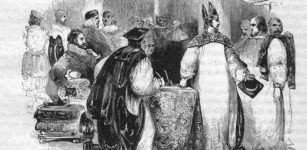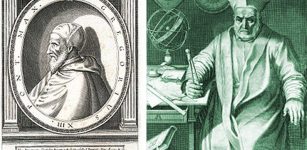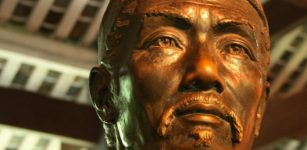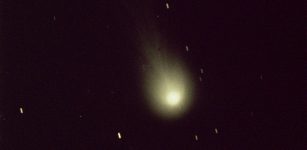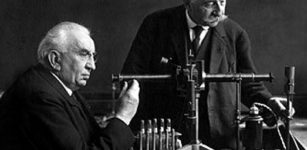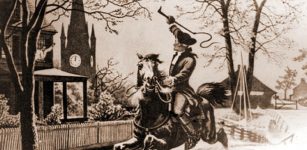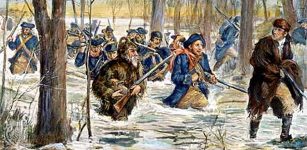On This Day In History: Captain James Cook Discovers Hawaiian Islands – On Jan 18, 1778
MessageToEagle.com – On January 18, 1778, Captain James Cook, the English explorer, became the first European to discover the Hawaiian Islands.
British Captain James Cook arrived in the Islands on his third voyage to the Pacific.
Commanding the Resolution and Discovery on a mission to explore a Northwest Passage and to plot the transit of Venus, Cook first sighted the islands of O’ahu, then Kaua’i and Ni’ihau on January 18, 1778.
He was greeted by the Hawaiians as a sacred high chief or a god.
These people were fascinated by the Europeans’ ships and their use of iron.
Cook responded to islanders’ hospitality by giving Hawaiians three goats, pumpkins, and onions, two English pigs, and seeds to plant melons.
After naming the Islands after his patron, John Montagu, Fourth Earl of Sandwich, Cook left for northern waters to complete his mission.
Returning in November to winter in the Islands, Cook and his ships tacked off the coasts of Maui and Hawai’i for eight weeks before anchoring for an extended stay at Kealakekua Bay.
See also:
Link Between Captain Cook’s 1778 Records And Global Warming Discovered
Captain James Cook Spotted The East Coast Of Australia – On Apr 19, 1770
In three voyages, Captain Cook sailed thousands of miles across largely uncharted areas of the globe. He mapped lands from New Zealand to Hawaii in the Pacific Ocean in greater detail and on a scale not previously achieved. He recorded islands and coastlines on European maps for the first time.
Cook was an expert mapmaker. He displayed a combination of seamanship, superior surveying and cartographic skills, physical courage and an ability to lead men in adverse conditions.
Unfortunately, there was an tragical incident; Cook was attacked and killed in a confrontation with Hawaiians during his third mission of exploration in 1779.
He left a legacy of scientific and geographical knowledge which was to influence his successors well into the 20th century, and numerous memorials worldwide have been dedicated to him.
MessageToEagle.com
Expand for references


